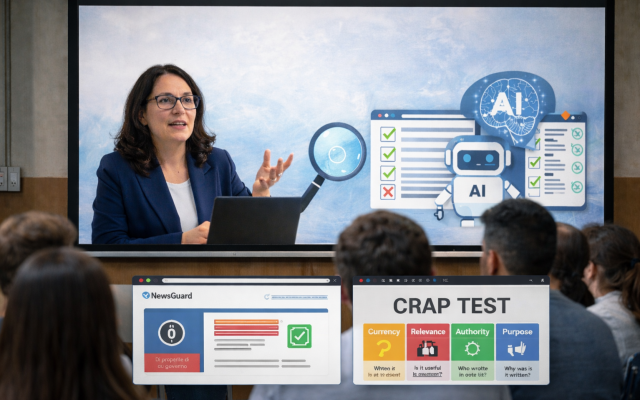Fully Enjoy the Internet: the experience of a psychologist.
Marianna Martini is a psychologist who has always been committed to safeguarding young children, both on-line and in the physical world. “I began working on the on-line world as a collaborator of telefono azzuro in 2018,” she explains. “And I continued to hold labs for both young and older children, especially on the issue of on-line bullying. It’s an issue that increasingly concerns both the digital and physical worlds. Indeed, even if one is not on social media, they still are not immune from phenomena such as cyberbullying. Our web reputation develops independently from people’s will and can influence future human and professional relations, even creating a barrier. Just consider phenomena such as happy slapping and cyberbashing, videos of aggressions that are then published on social media. Contrasting these two phenomena mean fighting cyberbullying. Then, there is sharenting: by the age of five, children already have 1500 photos on-line, and therefore also already have a web reputation. In Great Britain, a young woman brough her parents to court for privacy violations and won.”
At a certain point, Marianna began collaborating with local and national agencies on educational initiatives in schools for alumni, faculty, parents, and citizens in general. Then she was hired as a coach for Fully Enjoy the Internet, an important experience that she speaks about in this interview with Onelia Onorati.
Tell us about your experience with Fully Enjoy the Internet
I started out as a coach at the beginning of the project, with both on-line and on-site training sessions. I mostly addressed issues related to digital wellbeing, identification of fake news, safeguarding personal information, and naturally cyberbullying. The issues I encountered included parents who did not pay attention to their children’s on-line activities, little attention to the passwords used for their children’s devices, and the difficulty to actively listen and speak without passing judgement.
Can the project be used to support civic education at school?
Certainly, it bridges various gaps concerning on-life issues. Besides training sessions, Fully Enjoy the Internet provides tools that can be used daily with students. On-line security cannot be addressed all at once. It requires various phases, because it is such a complex issue. The five project pillars address issues that can be discussed based on the subjects taught by any professor.
What interest can the project hold for adults, both as teachers and as parents?
As I mentioned, even adults must be involved. They should be the ones selecting what young men and women and smaller children should view, also correcting habits such as too much time spent on-line and aggressiveness on social media. Cyberbullying is ageless, unlike bullying in real life! Fully Enjoy the Internet has a double function: training adults who are not digital natives to use the web and support them to help their children and students to discover the web.
So, must we turn to adults to stop on-line crimes such as solicitation and revenge porn?
When it comes to sexuality and emotions, parents must provide the information, or children will find it with a single click on-line. The issues of sexting turning into revenge porn and on-line solicitation are increasingly widespread, but parents have a hard time identifying them. One thing we recommend is to not allow children to use devices behind closed doors. It’s much better to allow them on-line in common areas. Sharing and dialogue are fundamental.
What approach do you use in your training sessions?
I always begin by speaking about emotions, because I want to impart the awareness that on-line life is real and what is published on-line has repercussions. The goal is to raise the children’s empathy, bridging the gap created by adult unawareness or inattention. Moreover, providing a good example is fundamental. Once, during a training session, an eight-year-old said he did not have a mobile and the entire class made fun of him. He replied that he did not want to be like his father who used it continuously and never played with him. An eleven-year-old explained how he was bullied but didn’t tell his parents because they were too busy. A complete reversal of roles that provides food for thought!




